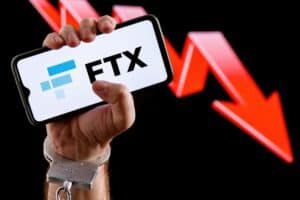
Investors Withdraw Class-Action Lawsuit Against Do Kwon and Terraform Labs
The controversy around Terraform Labs has started to slow down. The founder of the project Do Kwon who has been dealing with a class-action lawsuit from investors has received some good news.
The investors in the case have decided to drop the lawsuit against him and Terra Labs that was prosecuted via the Securities and Exchange Commission. The executive has reached the end of the imprisonment sentence at Montenegro.
It is important to note that Kwon had been facing charges of fraud from a group of investors involved in the class-action lawsuit. However, as per the latest filing at the District Court of Northern District of California, the plaintiffs have claimed to end the lawsuit.
The filing was chartered by the leading lawyer Nick Patterson who was representing investors against Do Kwon and Terraform Labs. The filing does not state the main reason for dropping the case against the defendant and the stablecoin issuer.
The filing has stated that the case has been dropped without prejudice meaning that plaintiffs may pursue the case later at their discretion.
Loopholes in the Case
Talking about the case, the defendants maintained that the briefing process exposed some weaknesses in the arguments of the prosecution. He briefed media that the case was dismissed on accounts of meritless legal claims.
He further stated that the defendants in the case have not filed for a summary judgment or any new motions in the court thus far.
He maintained that court did not assign purpose for the proposed class in the case and dismissal will not bind the defendants in the given class. Patterson said that the lawsuit was initiated in 2022 when Terraform Labs filed for bankruptcy.
This crash has led to the start of a major crypto crash. Since that time, Kwon has faced more charges and issues with regulators from many countries for alleged scams and attempting to defraud the investors.
The SEC also brought a class-action lawsuit against Kwon and Terra. He faced charges for purported a multi-million dollars securities scam. The case was filed in February and Kwon was apprehended by the authorities in Montenegro in March.
He served a 4-month prison for using falsified documents for travelling. He can face extradition to South Korea or US when his sentence is completed.
Hubris-Based Strategy of Terra
A media report suggests that the fall of Terra is attributed to its hubris-based trading strategy approach. Terra promised 20% interest income to investors who would deposit their UST reserves in the Anchor protocol. This move incited demand for LUNA token because it was used to create more UST stablecoins.
However, the firm did not have a revenue stream to generate the income that was due as payment to the UST stakers. This situation led to UST investors paying LUNA investors and vice versa.
Terra investors split into two symbiotic groups with one section opting to minimize UST and the other one that was working on price appreciation for LUNA.
The Luna Foundation Guard or LFG wanted to add $3.5 billion in Bitcoin as reserves backing the project. However, the non-profit entity did not wanted to sell massive amount of LUNA token to maintain it value. Therefore, it opted for exchanging UST in exchange for Bitcoin.
It led to an increase in UST liabilities and diminishing collateral in the form of LUNA tokens. At the same time, 72% of UST coins were locked in Anchor protocol that led to ultimate price slippage in May. Kwon told Coinage that the project cannot be characterized as Ponzi since earliest investors suffered from biggest losses.




